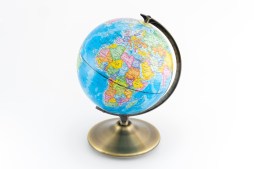The Crucial Role of International NGOs in Disaster Recovery
In times of crisis, the world often looks to international non-governmental organizations (NGOs) to provide relief and recovery assistance. These organizations play a vital role in disaster response, mobilizing resources, expertise, and support for affected communities. This article explores the significant contributions of global NGOs in disaster recovery efforts.
Immediate Response and Relief Operations
One of the primary roles of international NGOs during disasters is providing immediate relief operations. When natural disasters strike—such as earthquakes, floods, or hurricanes—these organizations are often among the first responders. They deploy teams to assess damage, distribute essential supplies like food, water, medicine, and shelter materials. Their established networks allow them to act quickly and efficiently to alleviate suffering and save lives.

Coordination with Local Governments
International NGOs also play a crucial role in coordinating with local governments and agencies during disaster response efforts. By working alongside local authorities, these organizations can better understand the specific needs of affected populations. They help streamline aid distribution processes while ensuring that relief efforts are culturally sensitive and meet local regulations. This collaboration ultimately leads to more effective responses to disaster situations.
Capacity Building for Resilience
Beyond immediate relief efforts, international NGOs focus on capacity building within communities impacted by disasters. They provide training programs that enhance local skills in emergency preparedness and response. By fostering resilience through education on risk management strategies or sustainable practices, these organizations empower communities to better withstand future disasters and recover more effectively when they occur.
Advocacy for Policy Change
Global NGOs engage in advocacy work aimed at influencing policies related to disaster management at both national and international levels. Through research, reports, and partnerships with other entities such as governments or private sector stakeholders, they strive for legislative changes that improve funding for disaster preparedness programs or promote equitable recovery strategies for vulnerable populations.
Long-term Recovery Efforts
Lastly, international NGOs are key players in long-term recovery processes following major disasters. They assist with rebuilding infrastructure such as schools or hospitals while ensuring that reconstruction is sustainable and meets community needs. Their commitment extends beyond immediate assistance; they aim to help restore livelihoods through job training programs or microfinance initiatives that support economic revitalization after crises.
In conclusion, the role of international NGOs in disaster recovery is multifaceted—ranging from immediate aid delivery to long-term development strategies aimed at building resilience within affected communities. Their expertise not only saves lives but also contributes significantly to restoring hope and stability after devastating events.
This text was generated using a large language model, and select text has been reviewed and moderated for purposes such as readability.











